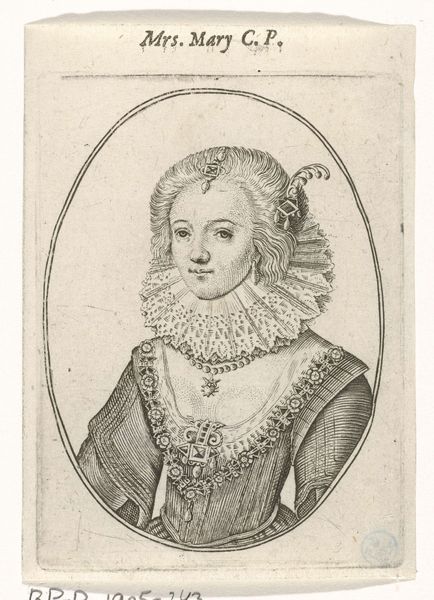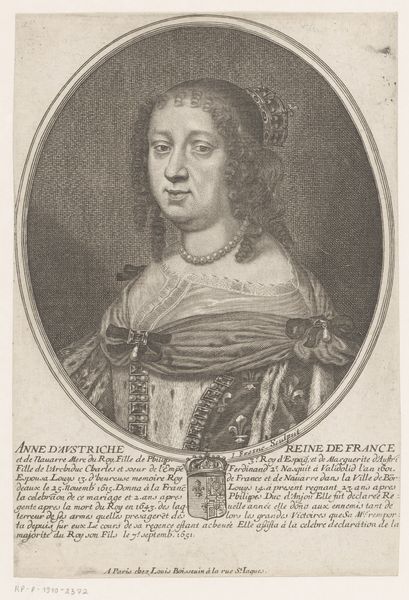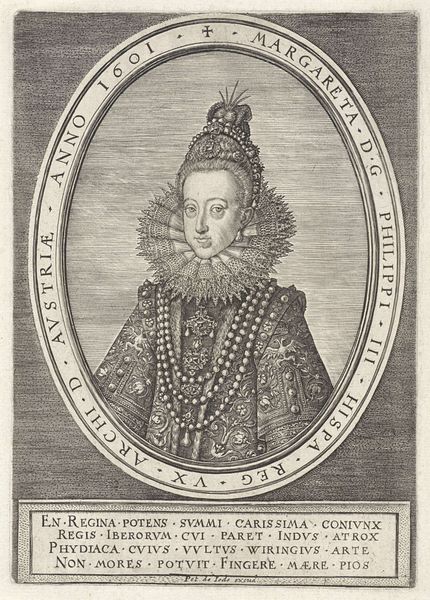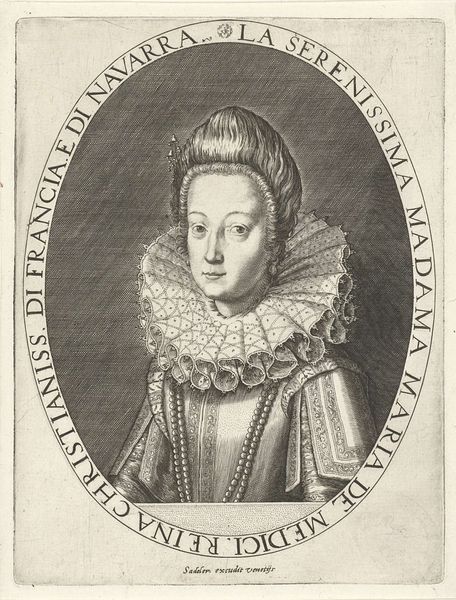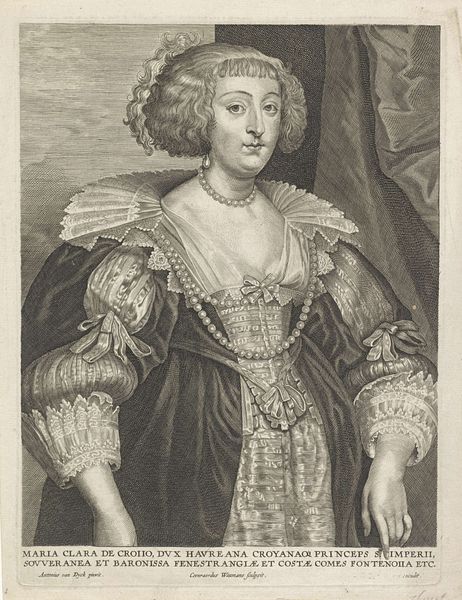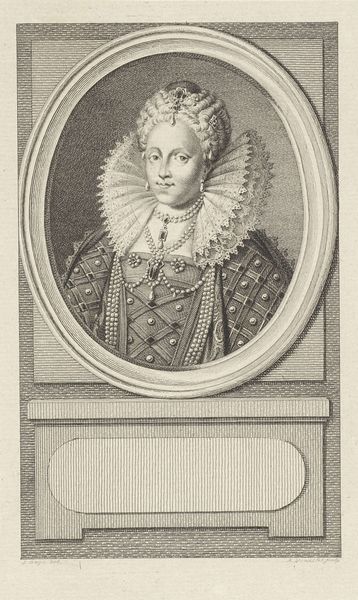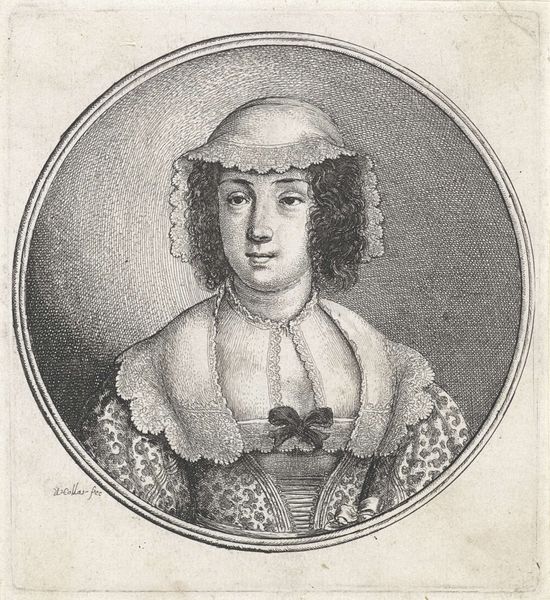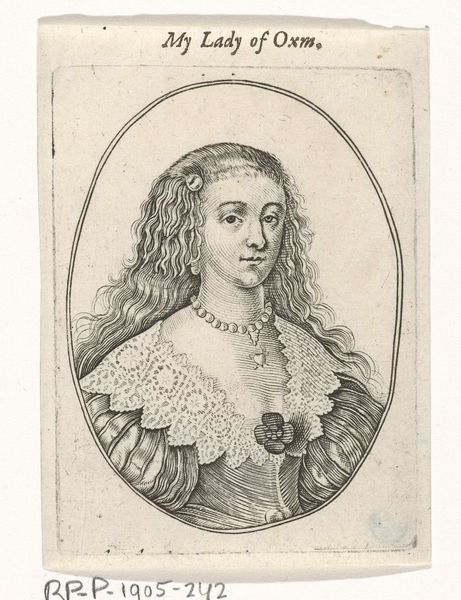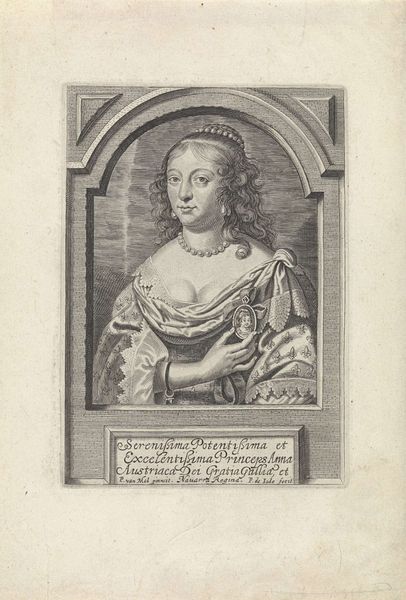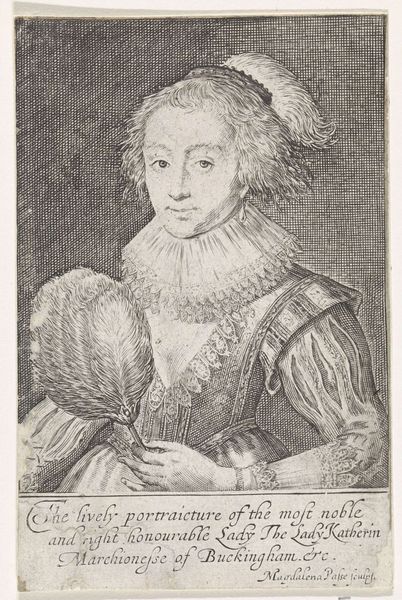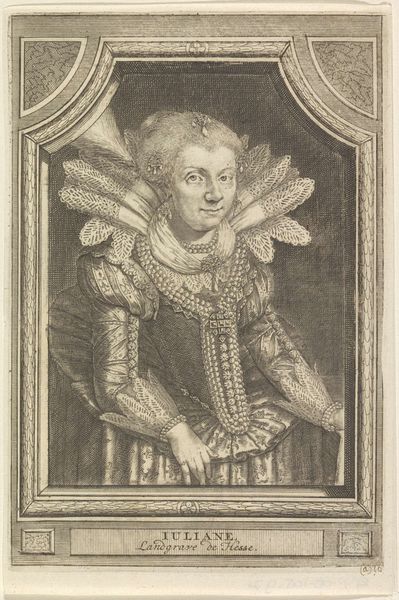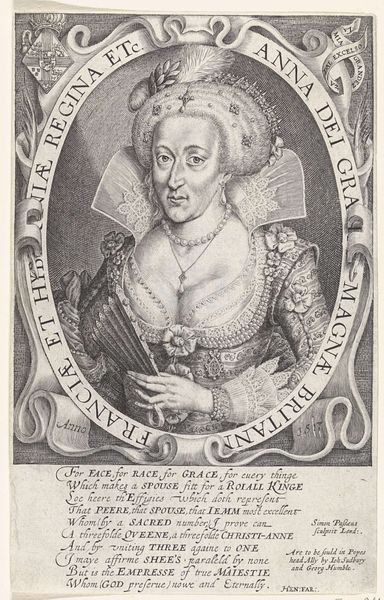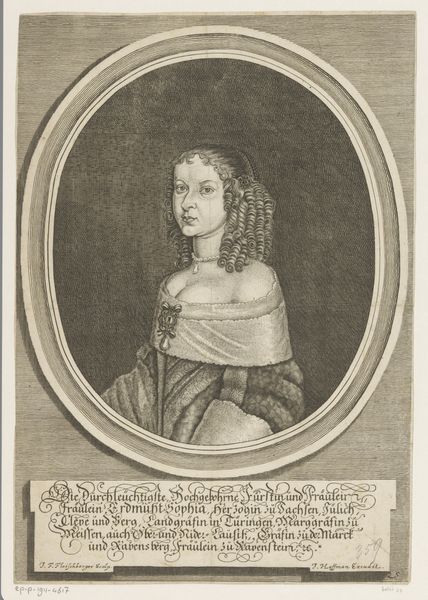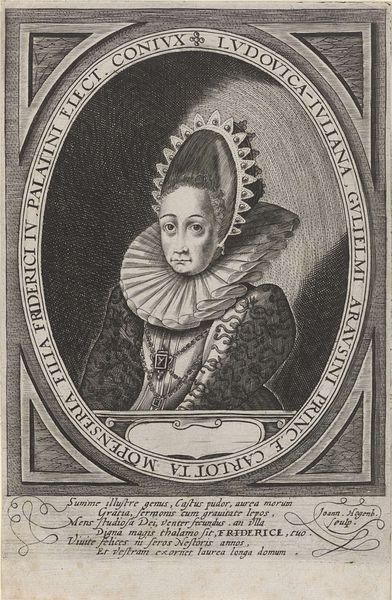
print, engraving
#
portrait
#
baroque
# print
#
old engraving style
#
history-painting
#
engraving
Dimensions: height 85 mm, width 63 mm, height 97 mm, width 70 mm
Copyright: Rijks Museum: Open Domain
Editor: This engraving, "Portrait of a Courtesan," made sometime between 1630 and 1710 by an anonymous artist, intrigues me. There's a certain...defiance in her eyes, wouldn’t you agree? How would you interpret this work? Curator: Indeed. Consider the title, "La belle Angloise"—The beautiful Englishwoman. Notice how the French inscription sits above the image, yet the Fleur-de-lis is prominently featured on her robe. What visual cues like that tell us about the intended audience and how they might perceive this woman, or women in general? Editor: I hadn't noticed the Fleur-de-lis, actually. Maybe it signifies more than just her beauty or Englishness – perhaps status, wealth, even power? Curator: Precisely! In this context, a fleur-de-lis might suggest royal association or aspiration, which affects how we receive her “defiance.” Now, what do we know of “courtesans” during the Baroque period, and the meanings and memories attached to the performance of gender and sexuality? Editor: So, we need to understand what a "courtesan" meant then. Were they simply sex workers, or something more complex? Curator: Far more complex! What does her clothing say about wealth and desire? Courtesans often held unique social positions. Symbols helped create and also subvert those identities, and thus can tell us a lot about societal anxieties. Her image negotiates between vulnerability and assertion. The gaze is powerful, yes? Editor: That's so interesting. I came in thinking it was just a pretty picture. Now, I see a whole world of historical and social commentary hidden within the symbolism. Curator: Visual imagery truly acts as a kind of time capsule. Each viewing unearths different emotional responses through shifting social and cultural values.
Comments
No comments
Be the first to comment and join the conversation on the ultimate creative platform.
